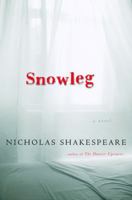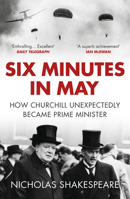In Tasmania
The settlement of Tasmania by Europeans began two hundred years ago. Nicholas Shakespeare first went there, having heard of the island's exceptional beauty, because it was famously remote. He soon decided that this was where he wanted to live. Only later did he discover a cache of letters written by an ancestor as corrupt as he was colorful: Anthony Fenn Kemp, the so-called Father of Tasmania. On his mother's side, too, Shakespeare found he had unknown Tasmanian relations; a pair of spinsters who had never left their farm except once, in 1947, to buy shoes. Their journal recounted a saga beginning in Northern England in the 1890s with a dashing but profligate ancestor who, having played tennis with the Kaiser, ended his life in disgrace in the Tasmanian bush. In this fascinating history of two turbulent centuries in an apparently idyllic place, Shakespeare effortlessly weaves the history of the island with his multiple stories, a cast of unlikely characters from Errol Flynn to the King of Iceland, a village full of Chatwins, and, inevitably, a family of Shakespeares. This description may be from another edition of this product.
Format:Hardcover
Language:English
ISBN:1585677205
ISBN13:9781585677207
Release Date:June 2005
Publisher:Harry N. Abrams
Length:374 Pages
Weight:1.49 lbs.
Dimensions:1.3" x 6.4" x 9.2"
More by Nicholas Shakespeare
Customer Reviews
1 customer rating | 1 review
There are currently no reviews. Be the first to review this work.




































